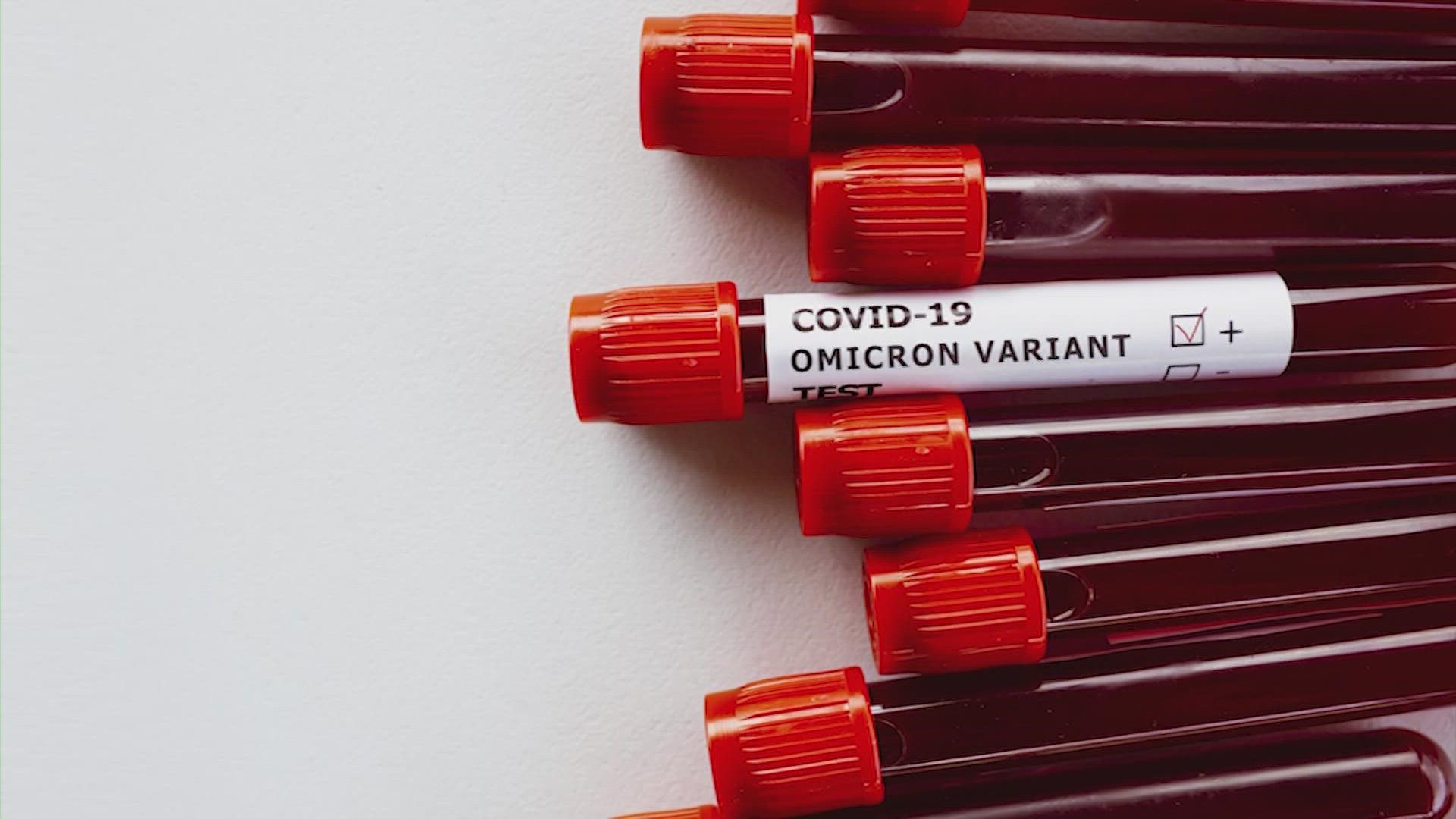HARRIS COUNTY, Texas — A woman in her 40s has tested positive for the omicron variant of COVID-19, according to Harris County Judge Lina Hidalgo.
Hidalgo said the woman lives in the northwest part of the county and hasn't traveled recently.
The Texas Department of State Health Services said it's the first reported case in the state.
“It’s normal for viruses to mutate, and given how quickly omicron spread in southern Africa, we’re not surprised that it showed up here,” said Dr. John Hellerstedt, DSHS commissioner. “Getting vaccinated and continuing to use prevention strategies, including wearing a mask when you are around people you don’t live with, social distancing, handwashing and getting tested when you have symptoms, will help slow the spread of the virus and help end the pandemic.”
After Hidalgo's announcement, Houston health officials announced the variant had been found in wastewater at eight of the city's 39 treatment plants.
Why are experts concerned about the omicron variant when we still know so little about it?
The short answer is some of what we do know is not good. According to research out of South Africa, the omicron COVID variant is at least three times more likely to cause reinfection than delta. That means the omicron mutation appears to allow it to infect people that already have immunity from a previous COVID infection. That could explain how omicron is spreading.
Scientists believe vaccines are still the most effective protection against severe disease and death, but researchers do believe omicron will make vaccines less effective thanks to how many mutations it has and the types of mutations it has.
U.S. health officials said Sunday that while the omicron variant of the coronavirus is rapidly spreading throughout the country, early indications suggest it may be less dangerous than delta, which continues to drive a surge of hospitalizations.
President Joe Biden's chief medical adviser Dr. Anthony Fauci told CNN's "State of the Union" that scientists need more information before drawing conclusions about omicron's severity.
"Thus far, it does not look like there's a great degree of severity to it," Fauci said. "But we have really got to be careful before we make any determinations that it is less severe or it really doesn't cause any severe illness, comparable to delta."
Fauci said the Biden administration is considering lifting travel restrictions against non-citizens entering the United States from several African countries. They were imposed as the omicron variant exploded in the region, but U.N. Secretary-General Antonio Guterres has blasted such measures as "travel apartheid."
"Hopefully we'll be able to lift that ban in a quite reasonable period of time," Fauci said. "We all feel very badly about the hardship that has been put on not only on South Africa but the other African countries."
Omicron had been detected in about a third of U.S. states by Sunday, including in the Northeast, the South, the Great Plains and the West Coast. Wisconsin and Missouri were among the latest states to confirm cases.
But delta remains the dominant variant, making up more than 99% of cases and driving a surge of hospitalizations in the north. National Guard teams have been sent to help overwhelmed hospitals in western New York, and Massachusetts Gov. Charlie Baker issued an emergency order requiring any hospitals facing limited patient capacity to reduce scheduled procedures that are not urgent.

